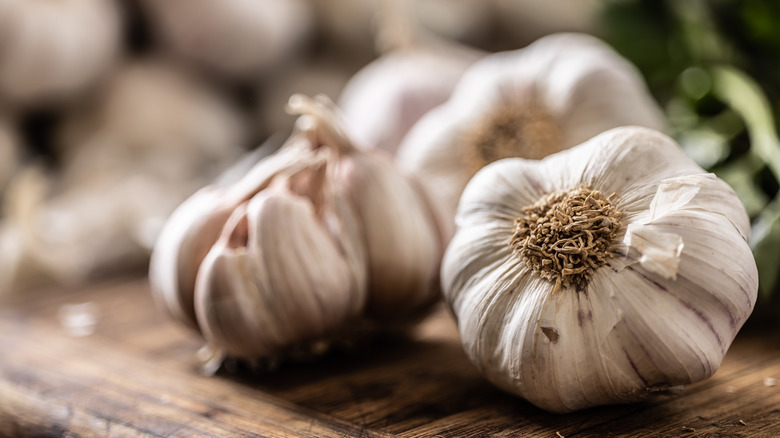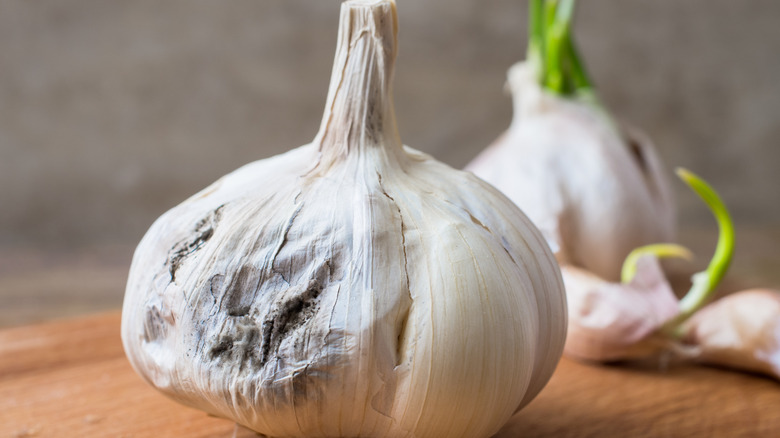The Best Way To Store Garlic (And How Long It'll Stay Fresh)
Unless you're a vampire, you probably enjoy garlic in many ways, from flavorful garlic bread to vibrant garlic butter shrimp. However, if you love cooking with garlic, you have to make sure you always have some in your kitchen that's ready to use. The best way to store garlic is to keep the unpeeled whole heads in a cool, dark, dry place with decent airflow, such as in a basket or mesh produce bag. Airflow is essential because rot can begin to set in without it. Likewise, garlic is best kept at temperatures between 60 and 65 degrees Fahrenheit.
If garlic is stored in a cold environment, like a refrigerator, it can trigger sprouting once it returns to warmer temperatures. Stored in optimal conditions and away from sunlight, garlic bulbs can last up to six months, and unpeeled cloves can last roughly three weeks. While whole bulbs shouldn't be kept in the fridge, peeled garlic cloves should.
A good rule of thumb is that garlic will last longer if it is fresher when you buy it. When purchasing garlic bulbs, take a close look at their texture. You want garlic that is firm with tight skin. If the bulb feels soft, it has started to degrade and should be avoided. That said, don't shy away from garlic with a purple hue; this is just another variety known as hardneck garlic, while all white bulbs are softnecks.
How to tell if it's time to toss your garlic
Even if you store garlic correctly, it will start to degrade after six months, and you'll have to discard it. Thankfully, it's pretty easy to tell whether or not your garlic has gone bad, as there are some obvious signs. Firstly, old garlic or garlic stored in a moist or poorly ventilated space can develop mold and soft spots. Mold will be evident on the outside of the bulb, while mushy spots will appear like black or brown spots dotted across the skin. Similarly, sprouting garlic can technically be eaten but will have a bitter flavor. Of course, if your garlic starts to have an off-putting smell, it should also be tossed.
Although it's rare for spoiled garlic to make people sick, the vegetable can harbor Clostridium botulinum. That's why garlic sold in oil often has citric acid added to prevent bacteria from growing and producing the toxin that causes botulism. Despite the low risk, it is still advised to promptly toss any spoiled garlic instead of trying to eat around it or cut it out.

